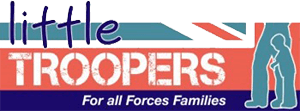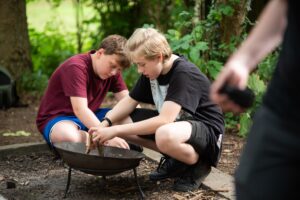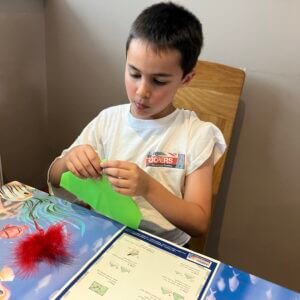Rosanna Raimato, is a School Leadership & Education consultant, and one of the many experts who we collaborate with to create our Little Troopers At School Resources. Rosanna has recently helped to create some of our secondary school resources and Forces Life Club pack. In this guest blog she explores the benefits of taking a holistic approach to supporting service pupils in school and discusses the importance of not making assumptions or stereotyping military children.
As a teacher and school leader, my understanding of military children and their families was very limited until it became my own lived experience. Over the past decade, I have seen the realities of moving my own child between different settings and schools, taught and been a governor at a Forces School abroad, listened to many parents and reflected enormously on what works and where we might do things better. One key aspect of this is realising that we need to consistently raise awareness of the individual needs of each child as they move through their education, against the backdrop of the realities of modern military life. Helping to create the new Little Troopers secondary school resources has been a great opportunity to explore practical ways schools, learners and their military families can work together to achieve this.
The wellbeing of military children in our schools is vital if they are to achieve their potential. The first step to this is to acknowledge their unique pathways and experiences. It’s very easy to fall into the trap of assuming all military children have moved around a lot or that they are stereotypically ‘resilient’ or ‘good at making new friends’ because of this. Equally, we can unconsciously lower our expectations of what they will achieve because of their circumstances. Neither of these well-intentioned viewpoints provide what military children need as they progress through education – a sense of their own identity, feeling that their own needs are understood and the support to realise their personal aspirations.
We can achieve this for them by taking a holistic approach to their wellbeing through both their academic and pastoral welfare in school. By asking ourselves what we really know about the individual child, we can discover a wealth of information that will help to make them feel understood and on track. While transfer forms have their place, effective communication with the military child, their family and their last school can uncover all sorts of useful but simple things, from their personality as learners to the specifics of the curriculum, methods and approaches they experienced. There are many straightforward details that can give teachers a short cut to welcoming in a new learner with less guesswork about helping them to be on the right track, giving them a huge confidence boost.
The other side of the military child’s wellbeing is, of course, understanding what that means to them. Having as full a picture as possible of their current circumstances is as important as knowing what has come previously. They may have the stability of location but a parent who is often away for long periods of time or weekly commuting. They might have moved at short notice or left behind a particularly cherished set of friends. A parent on a deployment might mean a change in the dynamics and responsibilities at home, particularly for older children, or quiet worries that impact on their behaviours. Our pastoral work with military children also needs to give them a voice and the ability to choose what that ‘sounds’ like. Being able to represent themselves, their history, their thoughts and feelings can powerfully capture their personal qualities, experiences and achievements along their unique journey.
With all this in mind, the new Little Troopers secondary resources aim to assist schools with all of these aspects and more. Materials for leadership teams, pastoral leaders, governors and teachers are designed to stimulate reflection and guide clear, simple actions on current and future practice in a quick and simple way. Resources for learners take into account the many facets of being a military child through their secondary phase years and what they can bring to their school, home and wider communities, while giving them opportunities to pause and express their thoughts and feelings alone or with others. The ‘Forces Life Club’ materials are designed to give military child groups of any size a range of activities that can be selected to reflect how they want to be represented, understood and supported. All the resources offer ideas for adaptations so that they are practical, straightforward and easy to fit into the busy rhythm of school life. Those for learners also fulfil the remit of the Service Pupil Premium and its focus on wellbeing.
My personal hope is that we can find ways to make military children feel different because of the importance of their individual qualities and experiences, not because they are constantly ‘catching up’ and ‘fitting in’. I’m convinced that by taking some practical steps to reflect, become a little more curious about military child life and making a few tweaks to our practice, we will be well on the way to achieving this goal in positive partnerships between our schools, the children and their families.





